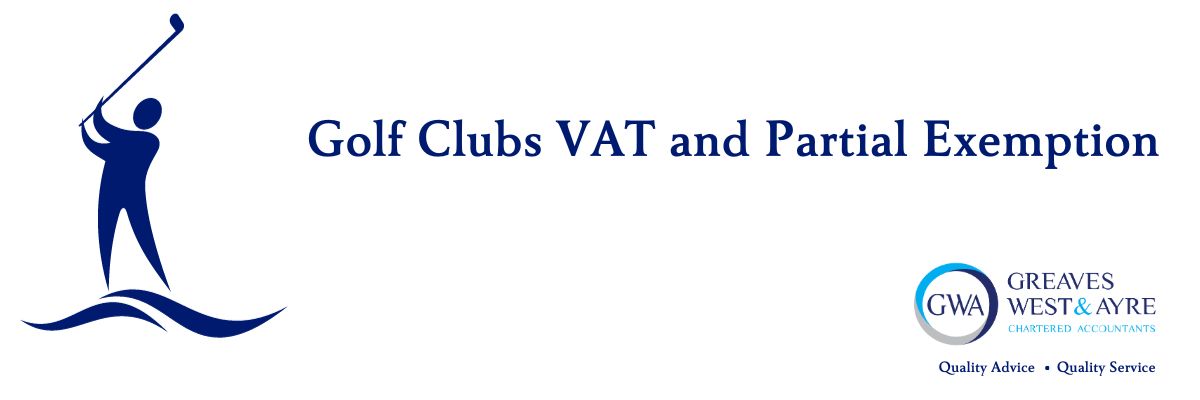Golf Clubs VAT and Partial Exemption

Golf clubs have several different income streams that often takes them over the VAT threshold for UK VAT. This leads them to submit a Monthly, Quarterly or Annual VAT return. Most commonly golf clubs will submit quarterly returns.
For Golf Clubs, being VAT registered opens the door for them to have to complete a partial exemption calculation.
What is Partial Exemption?
Partial exemption is a calculation you make along with each VAT return you submit. The calculation looks at your income streams, the expenses and what part of the business each relate to.
- Income – golf clubs have various income sources, below is an example of these along with the tax coding they generally follow on your VAT return.
- Green Fees – Exempt Income
- Membership – Exempt Income
- Tour operator income of green fees – Taxable Income
- Bar and Catering – Taxable income
- Buggies/Trolleys – Taxable Income
- Expenditure – as with income there are several different sources of expenditure, we allocate these based on the income stream they relate to.
- Taxable Expense – this would be anything we can attribute directly to taxable sales, anything coded here entitles you to all your VAT back on the VAT return.
- E.g. – Bar sales or buggy repairs
- Exempt expense – this would be for anything that is directly attributable to golf alone, something you would need only to facilitate playing.
- E.g. – Scorecards
- Partial expense – these are expenses that relate could relate to a taxable sale or an exempt sale.
- E.g. – course maintenance costs for machinery and general club overheads
- Taxable Expense – this would be anything we can attribute directly to taxable sales, anything coded here entitles you to all your VAT back on the VAT return.
What is the outcome of Partial Exemption?
Based on the above, before submitting the VAT return the club would calculate the totals of their income streams i.e. how much is Exempt and how much is Taxable, this would then be converted into a percentage. This percentage is important as it will be used against partial expenses in the calculation.
We would then look at purchases, all purchases allocated to taxable would be reclaimed on the return and Exempt expenses would be deducted from the VAT return. We would then take the total partial figure and allocate the taxable percentage from the sales to get the partial total. Once the partial total is known the taxable expense figure is added to give you your recoverable VAT figure.
Do I ever get all my VAT back?
There are 3 tests applied to Partial exemption.
- Is non recoverable less than recoverable?
- Is non recoverable less than £1875 in the quarter?
- Is non recoverable less than 50% of the total?
If the above conditions are met then all VAT can be recovered on the return, the calculation must be done for each return.
At the end of each VAT year, an annual exemption calculation is completed and is 4 times the values listed in each quarter, this looks at the same data but over the year, there can be additional adjustments to make based on this calculation, however, it also gives the chance to reclaim expenses which may have been unrecoverable throughout the year.


